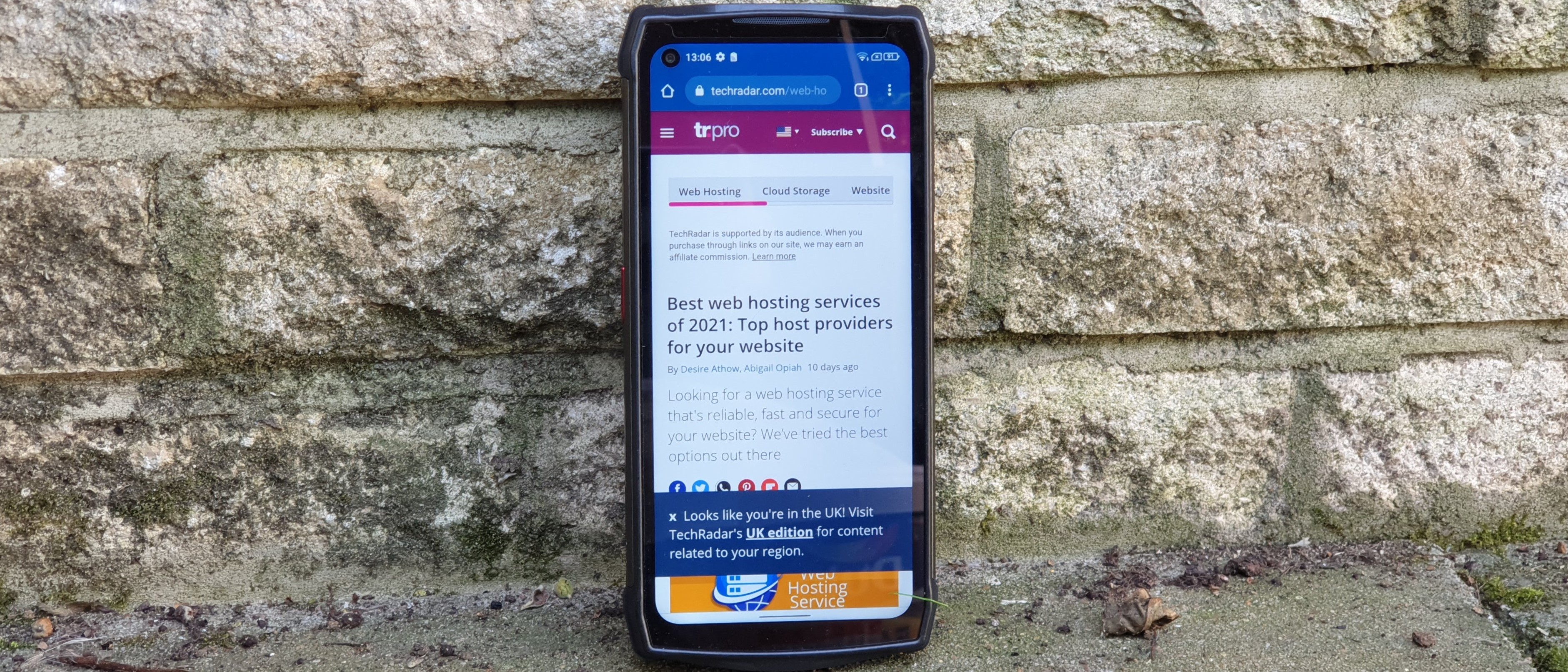TechRadar Verdict
The Ulefone Power Armor 13 is the closest rugged smartphone to a Swiss army knife thanks to its very large battery and solid range of accessories. It is keenly priced and while its lack of 5G and design will divide opinions, it remains a very good durable handset.
Pros
- +
Wireless reverse charging
- +
Laser rangefinder
- +
Good price
- +
Oleophobic coating
- +
Solid specifications
- +
Headset free FM radio
Cons
- -
Super high screen resolution superfluous
- -
Can’t run two SIM cards and memory card simultaneously
Why you can trust TechRadar
Two minute review
Having just reviewed the Oukitel WP15, we’re lucky to get another big-battery rugged smartphone coming so quickly through our doors. The Ulefone Power Armor 13 might have a smaller battery capacity (13.2Ah vs 15Ah) and be only 4G, but its bigger onboard storage coupled with a plethora of accessories, fast wired/wireless charging and reasonable price puts it forward as a compelling product for those who want a mobile device that can last days.
Ulefone added small features that highlight the level of attention to detail the designers used when producing this exquisite piece of engineering: reverse wireless charging, a laser rangefinder, the headset free FM radio (great for outdoors, even without 3G/4G coverage) as well as the accessory ecosystem. Note that its screen is, at nearly 7-inch, one of the largest we’ve seen on a rugged smartphone and definitely worth considering if you’re looking for a small rugged tablet replacement with a long battery life.
Pricing and availability
The Ulefone Power Armor 13 is on sale at Online Chinese retailer Banggood for $297.99. The price doesn’t include (subsidized) postage, local taxes or courier charges. The endoscope costs an extra $39.99 which is a fair price for what it is. If you want to buy from China, we’d advise you to read through our 2016 “Caveat Emptor” article.
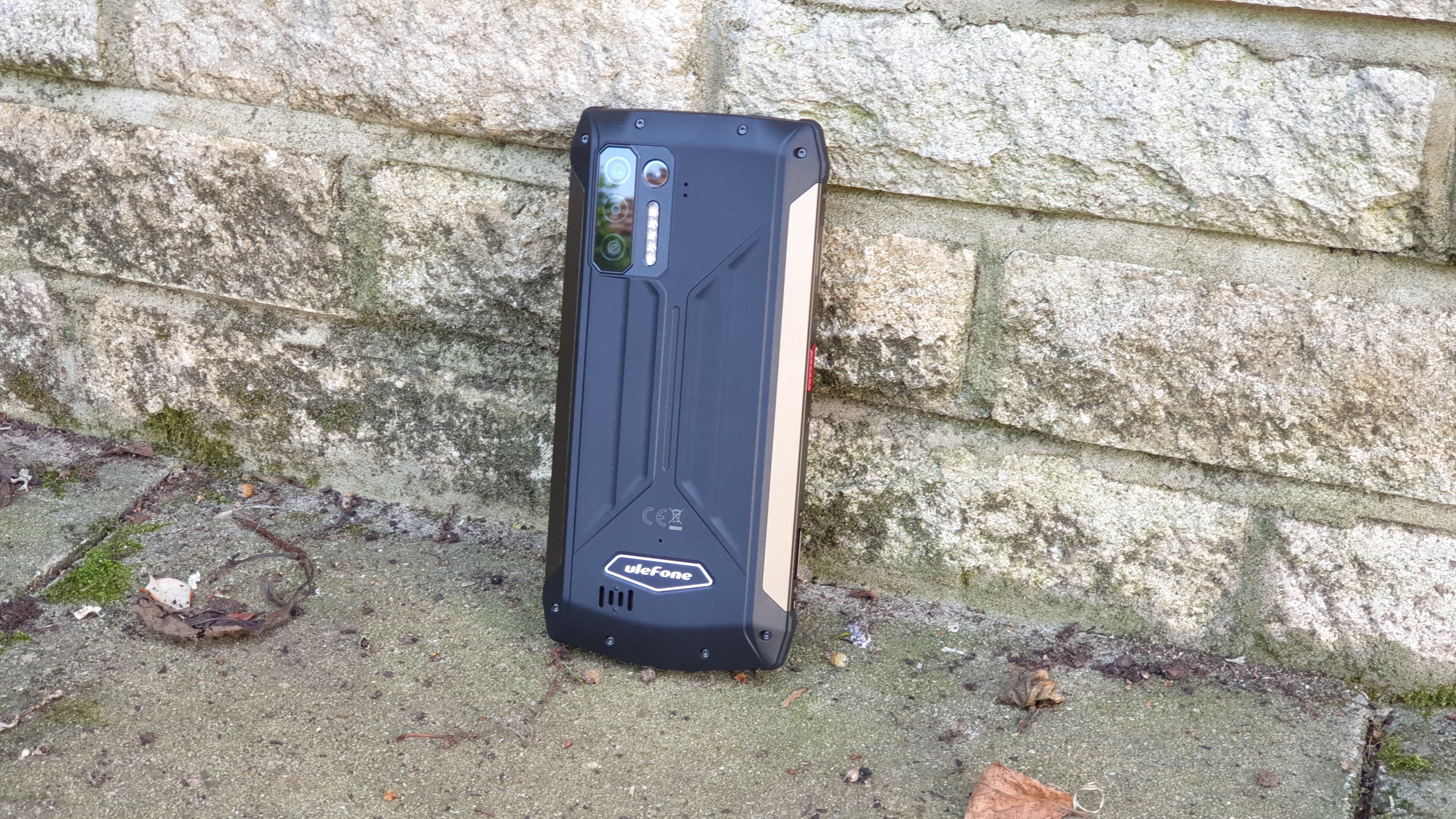
Design
Just like the Oukitel WP15, the Armor 13 adopted polycarbonate plastic and metal as the basic building materials. The metal frame will help it sustain drops while the thicker frame allows it to cushion any falls that could damage its internal components or its screen.
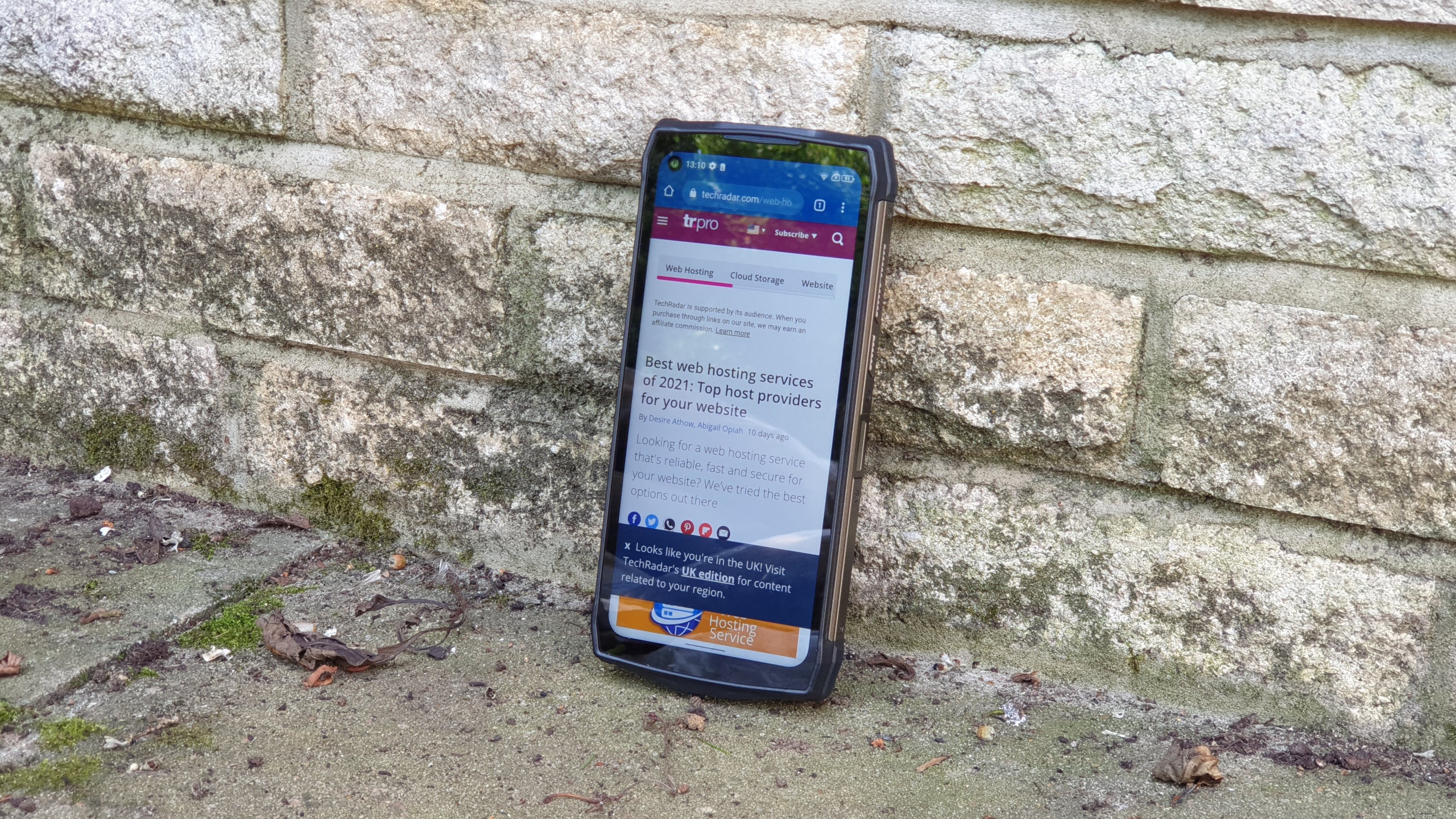
The 16-megapixel selfie camera is located on the top left hand side of the screen. The latter - which is a massive 6.81-inch 2400 x 1080 pixels IPS display - is surrounded by a raised hard plastic bezel that should protect it from falls. It is covered with an oleophobic layer which is a nice feature for those who hate fingerprints.
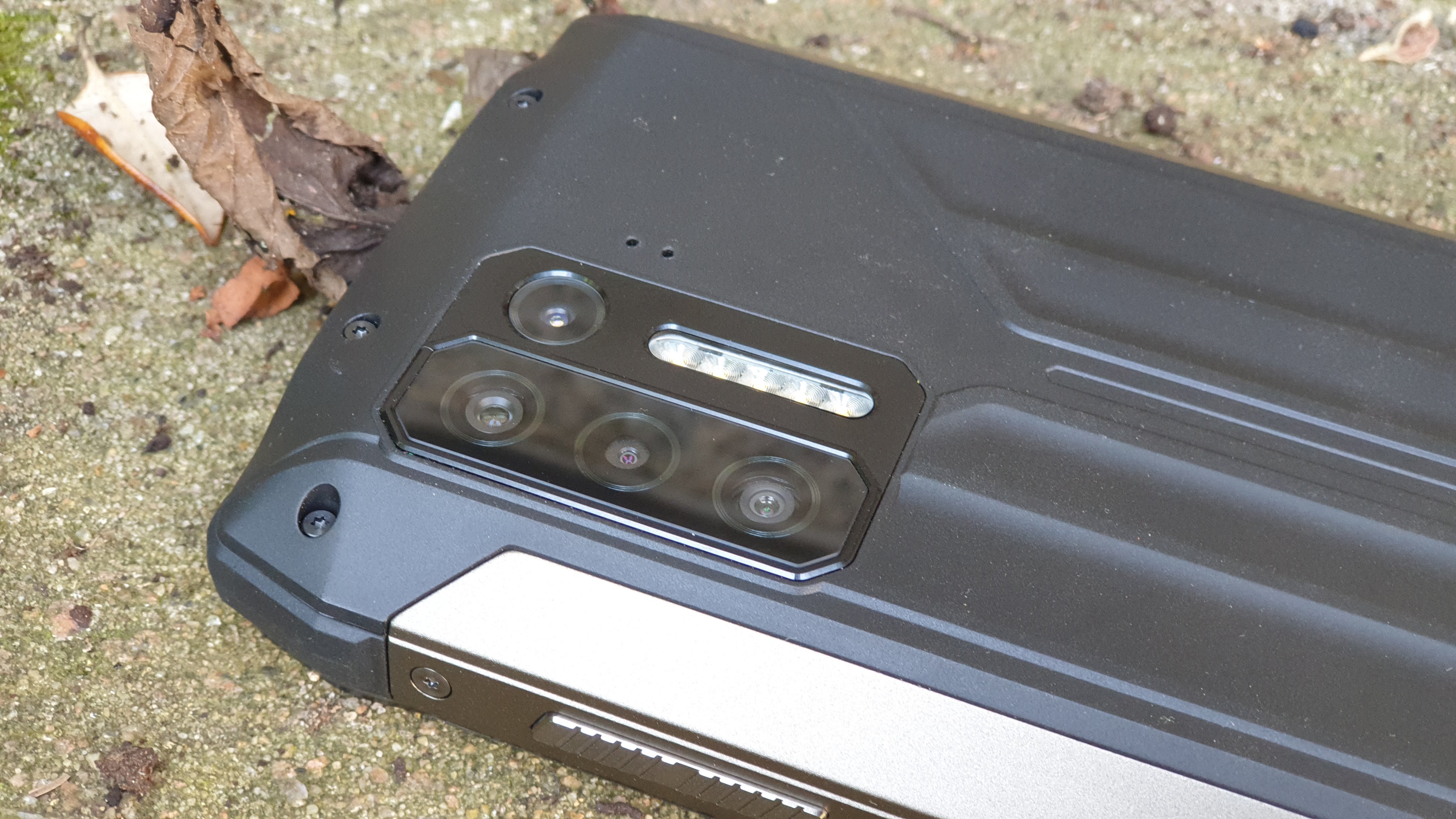
At the rear is a speaker grill as well as four camera sensors (main 48-megapixel one, 8-megapixel, 2-megapixel and 2-megapixel) and a 5-LED flash array.
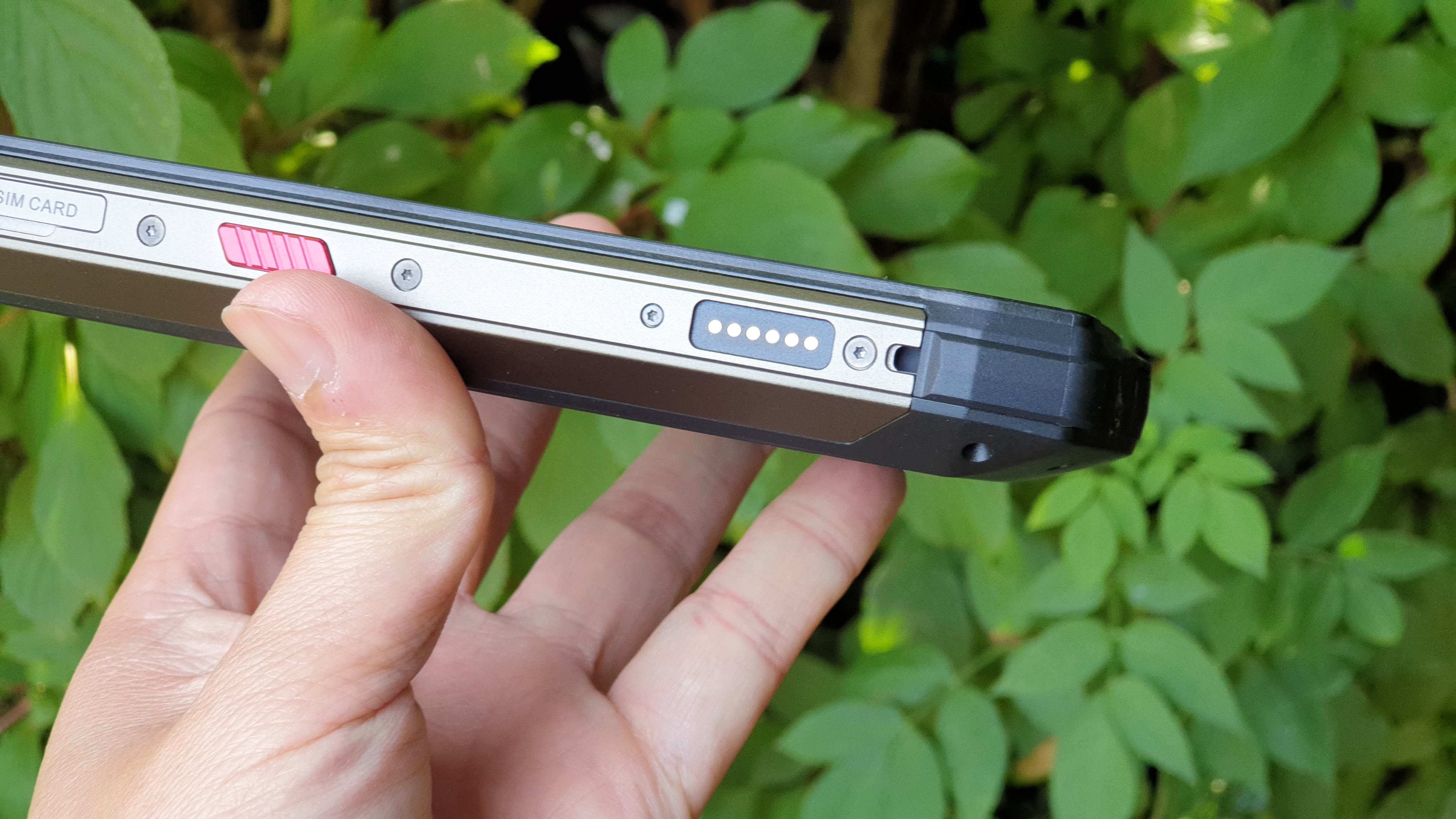
A POGO connector for accessories, a customizable red button and the SIM tray are located on the left hand side of the Armor 13 while a volume rocker, the power button and separate fingerprint sensor can be found on the other side. The Type-C connector and a 3.5mm audio jack are hidden by a flap on the bottom edge (remember, this is an IP68/MIL-STD-810G tested device) with a laser on the opposite side.
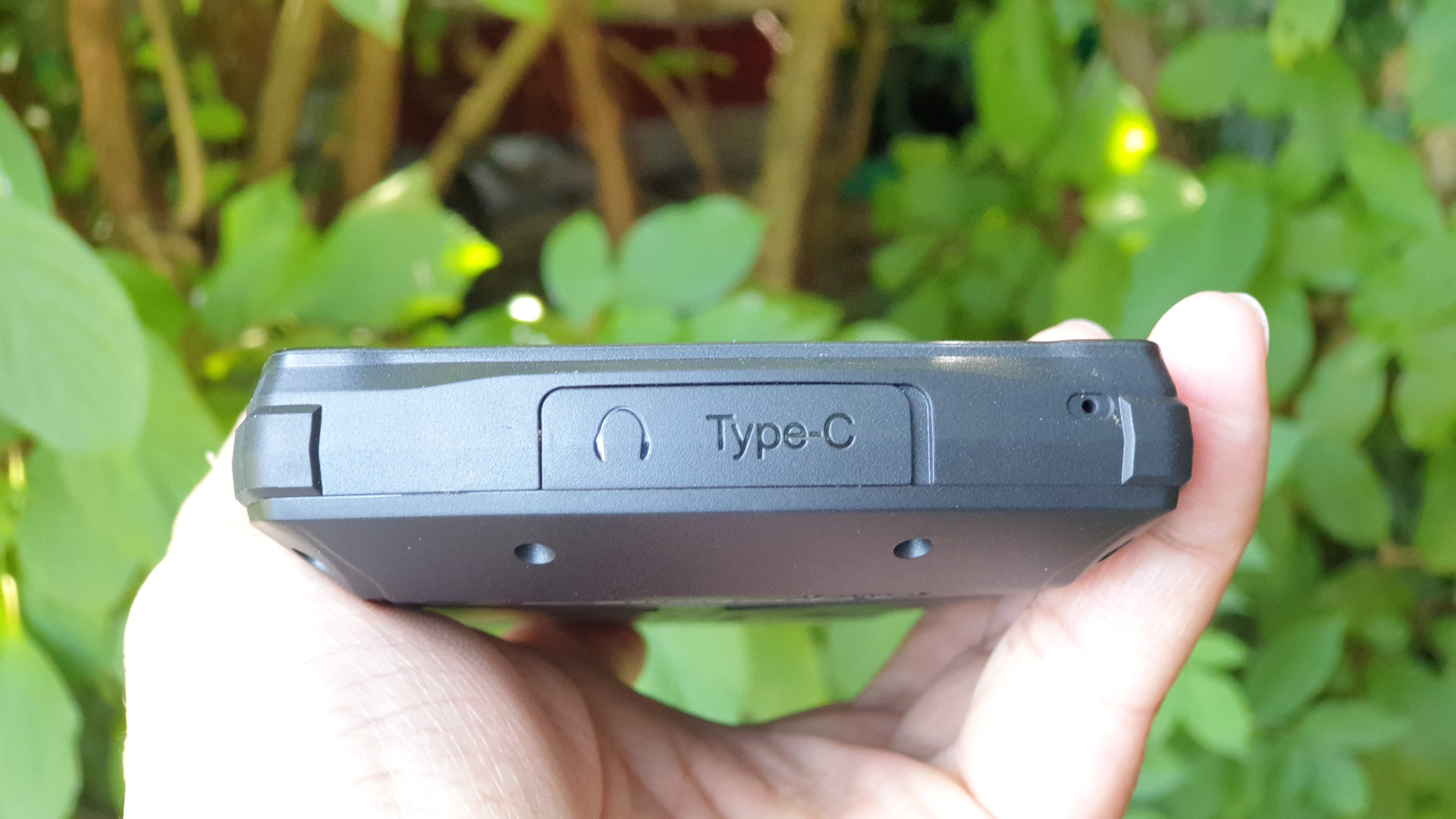
It is one of the heaviest smartphones we’ve tested at just under 500g and its dimensions - 182 x 86 x 21mm - means that it won’t fit in most jeans pockets.
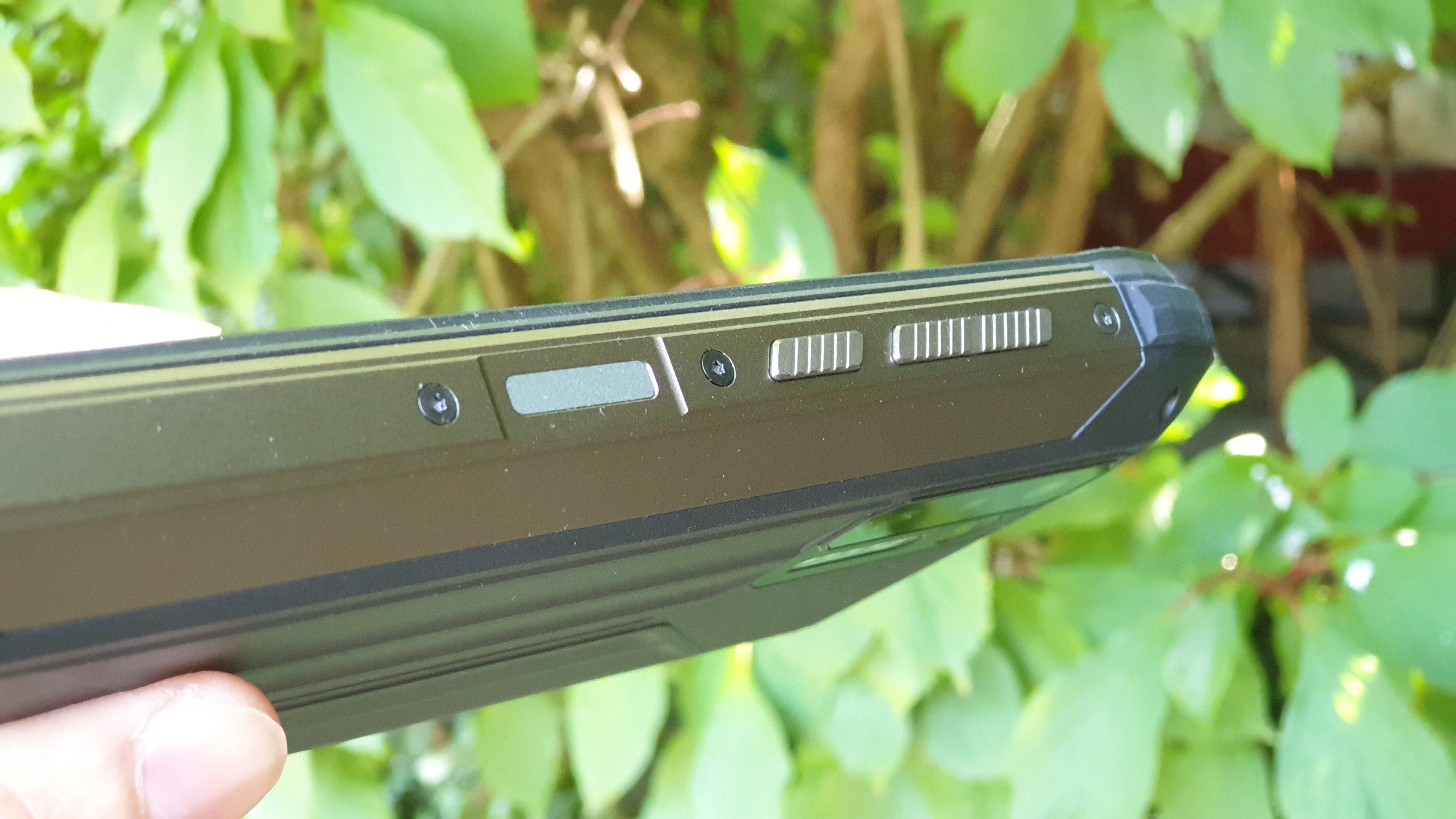
Hardware
The Ulefone Power Armor 13 comes with the following hardware:
CPU: Mediatek Helio G95
GPU: Arm Mali-G76 MC4
RAM: 8GB
Storage: 256GB
Screen size: 6.81-inch
Resolution: 2400 x 1080
Weight: 491g
Dimensions: 182 x 86 x 21mm
Rear camera: 48MP, 2MP, 2MP, 2MP
Front camera: 16MP
OS: Android 11
Battery: 13.2Ah
At the heart of the Power Armor 13 is the Mediatek Helio G95 which is its most powerful 4G chipset; it pairs a cluster of eight arm cores with four Arm Mali-G76 MC4 GPU cores, that’s the same chip used in the Doogee S97 Pro and the Realme 8.
Alongside it are 8GB LPDDR4x and 256GB onboard UFS storage. Wireless connectivity includes NFC, Wi-Fi 5 as well as Bluetooth 5.0. The 13.2Ah battery is charged using a compact 33W (11V,3A) battery and can deliver power (5W) or be charged wirelessly (15W). It can of course charge other compatible devices using the bundled OTG cable.
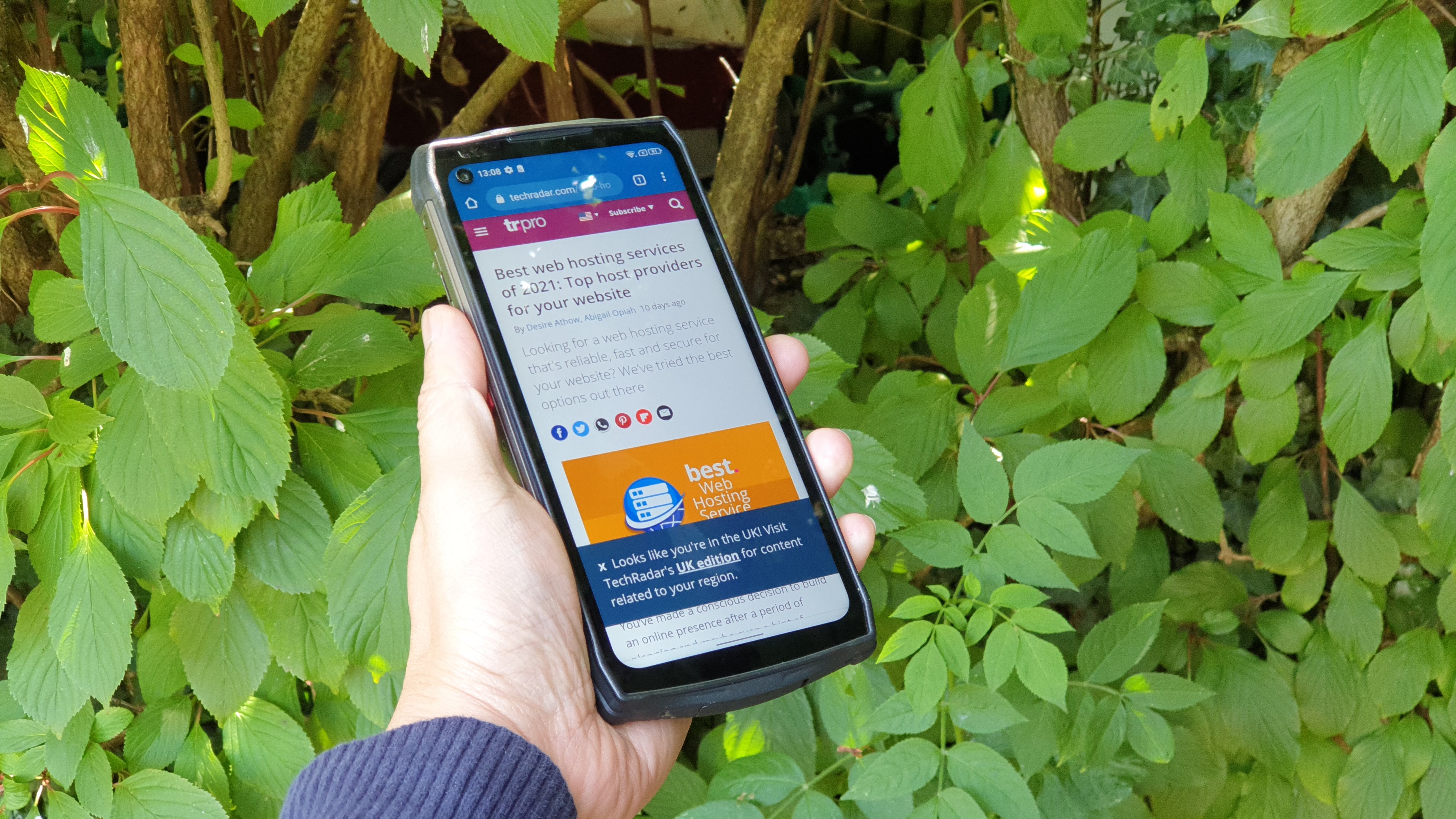
Performance and in use
The G95 performs better than the 5G-capable Dimension 700 found in the WP15 with some of the best PCMark numbers recorded to date for a non Qualcomm processor (above 10,000 points) with its storage subsystem being its only real notable weakness. Clearly, this is a capable smartphone that will leave entry-level rivals in its wake.
This is how the Ulefone Power Armor 13 performed in our suite of benchmark tests:
PCMark (Work 2.0): 10275
Passmark: 6769
Passmark CPU: 3105
Androbench (sequential): 519 (sequential read); 205(sequential write)
Androbench (random): 164 (random read); 29 (random write)
3DMark Wild Life Vulkan: 1516
LinPack MFLOPS: 777
Its laser rangefinder worked as expected (it’s essentially the same as the one on the S97 Pro) and outside the full array of Google Mobile Services (Youtube, Gmail) are the usual Mediatek apps like the Security Center (which is more of a utility suite), Children Space and Easy launcher which are basic virtual desktops not dissimilar to Samsung’s Knox.
As expected, it comes with Android 11 (with a custom user interface) and an app bundle curated for outdoor fans and DIY aficionado, usually found on Mediatek-powered rugged handsets: barometer, sound meter, protractor, compass and more.
Should I buy the Ulefone Power Armor 13?
Buy it if:
You want a big battery
It doesn’t have the biggest battery in town (that’s the Oukitel WP15) but some might prefer the hardware combination offered by the Armor 13 (more storage, high res display, better front facing camera and wireless charging).
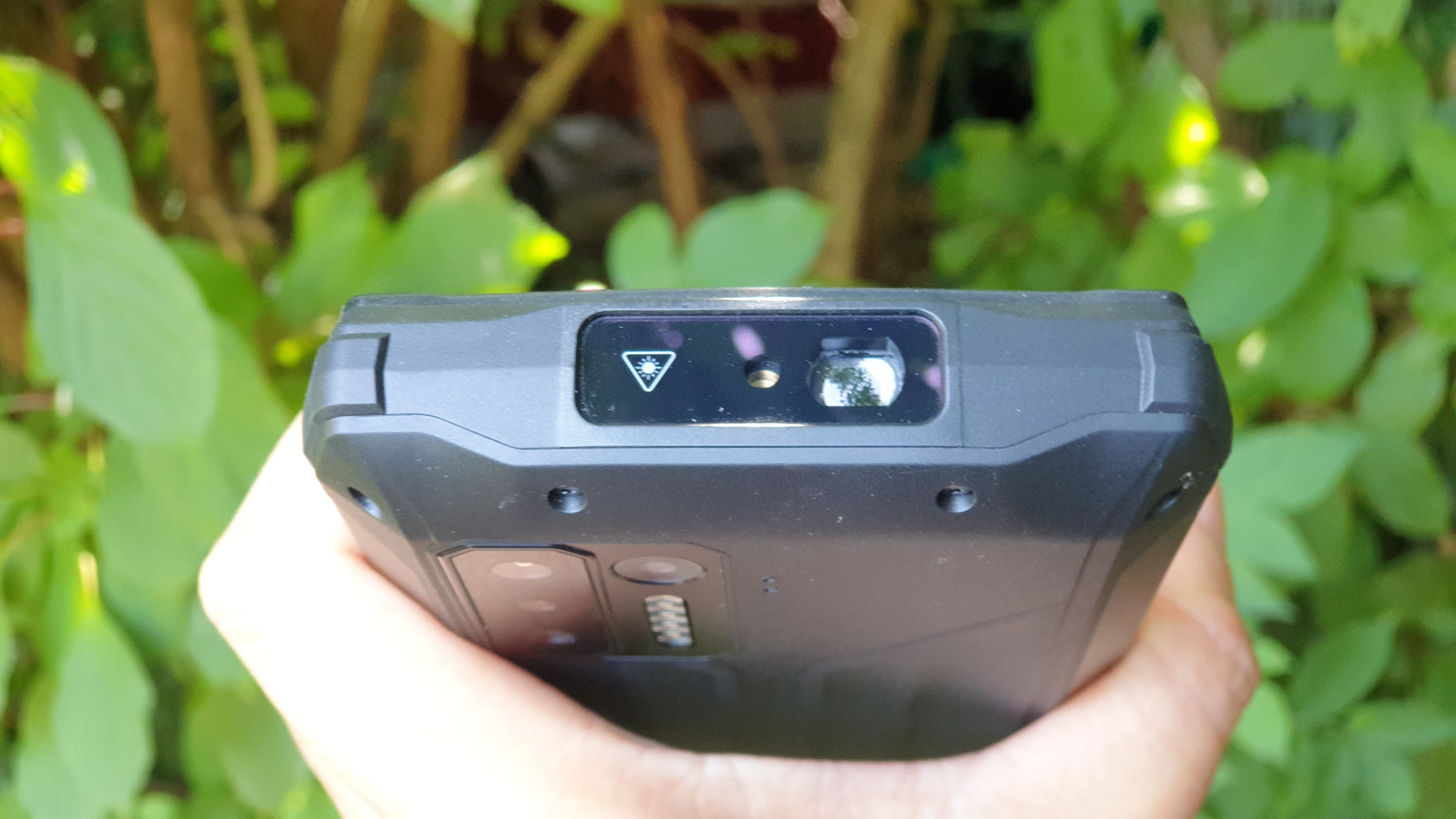
You want something different
With the bundled laser rangefinder and an optional endoscope, the Power Armor 13 makes for a very appealing work phone (as opposed to a business phone) that can do much more than just make calls. Handymen and DIYers will appreciate it.
Don’t buy it if:
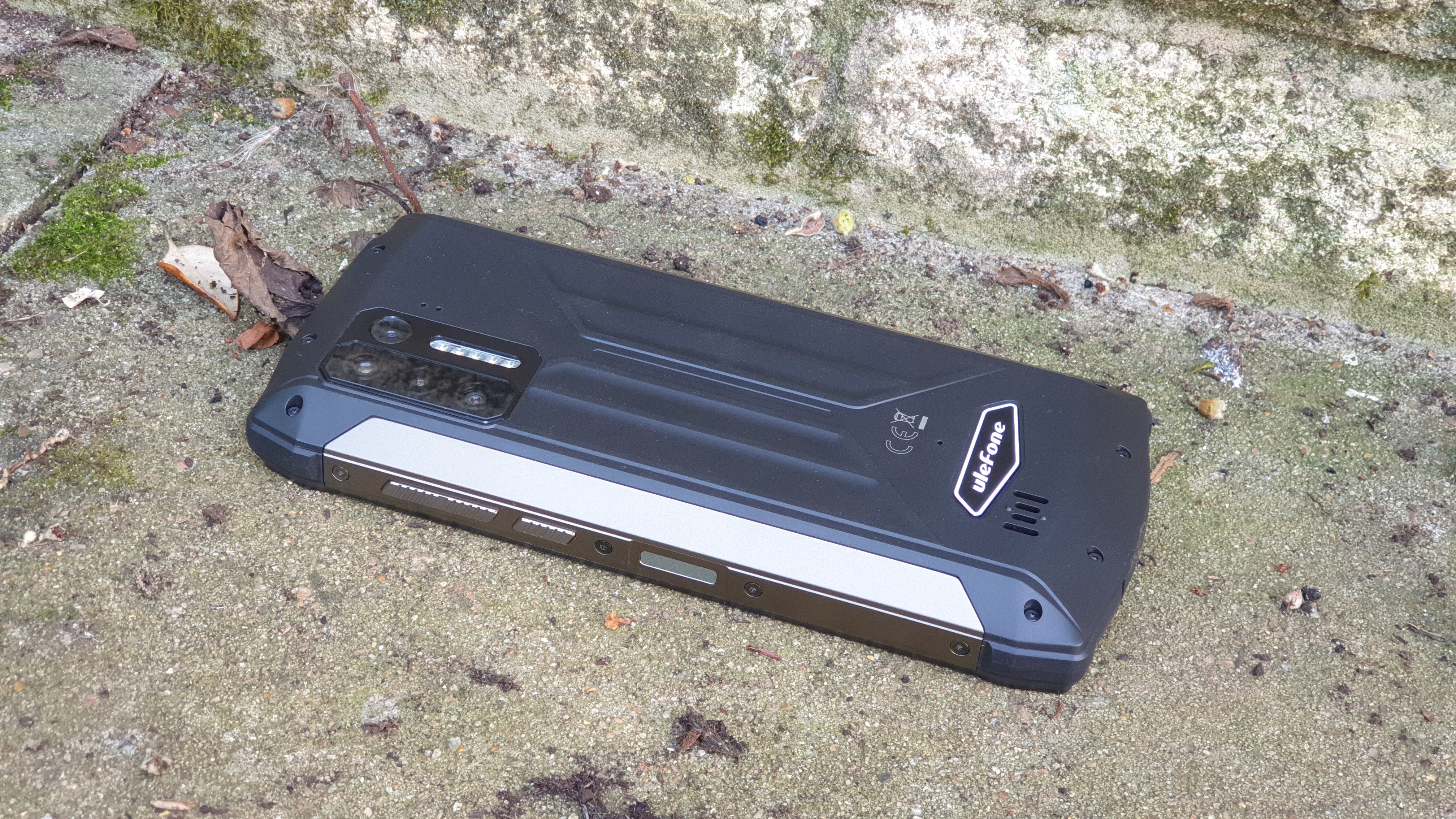
You can’t handle a big phone
The Power Armor 13 is a massive smartphone, one of the biggest we’ve seen and it would be understandable that it won’t appeal to a huge chunk of the market. Just bear in mind that you could buy it in lieu of a 4G mobile hotspot and get something far more versatile.
You want rock-solid after sales support
Rugged smartphones released by Ulefone and most of its Chinese rivals are unlikely to receive subsequent OS updates. Likewise, warranty is patchy at best with returns.
- We've also highlighted the best rugged smartphones

Désiré has been musing and writing about technology during a career spanning four decades. He dabbled in website builders and web hosting when DHTML and frames were in vogue and started narrating about the impact of technology on society just before the start of the Y2K hysteria at the turn of the last millennium.
